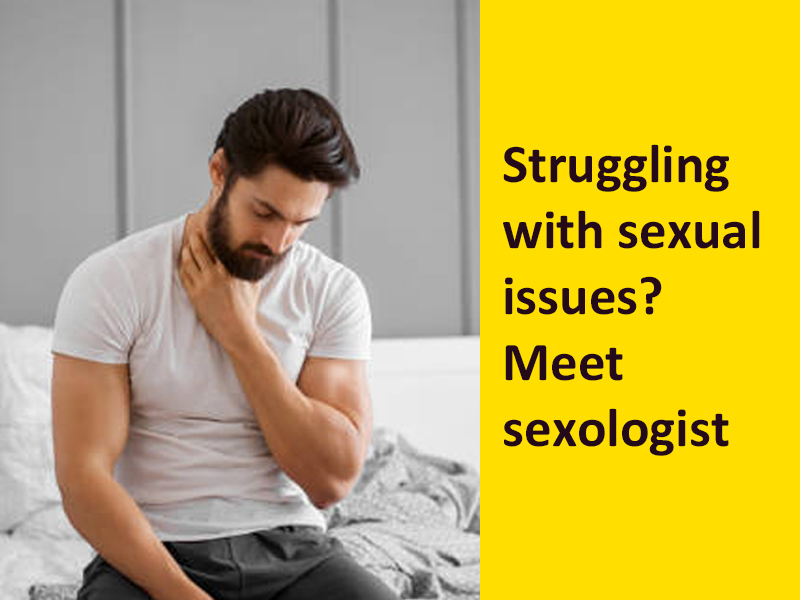Difficulties in sexual life are not uncommon. One in three women under the age of 40 experience problems with sex. At 40-60 years old, this occurs with the same frequency, and after 60 – in every second.
This statistic also applies to transgender men and non-binary people with sexual problems. Men have them too: every tenth has difficulty in sex.
If you feel that your sex life has been hit by situations that you cannot solve on your own, do not put off a visit to a specialist. There are no unsolvable tasks; it is just better to entrust some of them to a professional.
Also, remember that the problems with desire, arousal, and orgasms do not have to be solved alone.
A sexologist will help to cope with them. We tell you what happens at the appointment with a sexologist and how it helps to enjoy sex.
When do you turn to a sexologist?
A sexologist is a specialist in solving human sexual problems. To understand when the help of a sexologist is needed, let’s figure out what a sexual problem is. So you can call any barrier to pleasure in the cycle of human sexual reactions.
The cycle consists of 4 phases: desire, arousal, orgasm, and completion. At the same time, men and women can go through it incompletely and in a different order – any options are normal if the cycle ends with pleasure. If not, then you can seek help from a sexologist.
What types of sexual issues can be resolved by sexologists?
A sexologist is engaged in diagnosing and treating pathologies associated with the sexual sphere and sexual desire.
Andrologists and gynecologists also deal with these problems, but they consider these disorders from a physiological point of view, while a sexologist is more concerned with the psychological causes of disorders.
Men are advised to contact a sexologist if they find the following physiological symptoms:
- violation of ejaculation (delay or premature ejaculation);
- orgasmic anhedonia (lack of physical sensation of orgasm);
- postcoital headaches (headaches after sex);
- pain during masturbation;
- priapism (too long erection of the penis for more than 3 hours);
- wet dream;
- sexual activation disorder (erection dysfunction).
Women are advised to contact a sexologist if they experience the following symptoms:
- spasms in the area of the entrance to the vagina;
- sexual coldness (decreased libido);
- lack of orgasm;
- pain during intercourse.
You should also consult a sexologist if you find common psychological symptoms:
- fear of sexual intercourse;
- lack of pleasure during intercourse;
- increased sexual desire (nymphomania, satyriasis);
- violations of gender identity;
- sexual obsessions.
Sexology touches the most intimate sphere of human relations; many patients are very shy to consult a sexologist.
However, world practice shows that a sexologist helps cope with most sexual disorders. The consequence of this is a smaller number of quarrels between partners, a decrease in the number of separations and divorces due to the sexual dissatisfaction of partners, and a decrease in the number of suicides in adolescents with deviations in the sexual sphere.
Many studies stated that women who received the help of a sexologist are much less likely to experience depression, and the frequency of psychogenic disorders decreases. There is no need to be shy at a sexologist’s appointment – maximum openness significantly increases the effectiveness of therapy.

